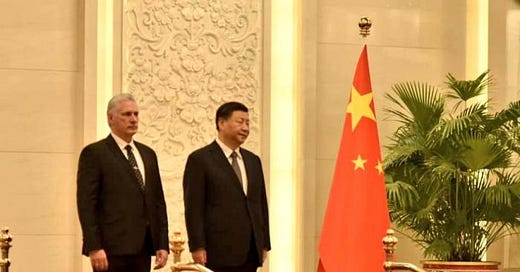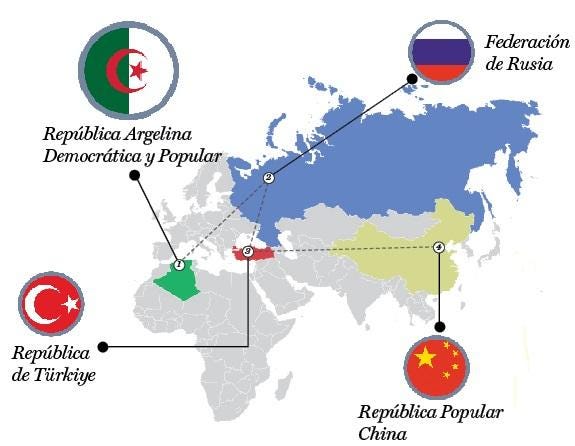Díaz-Canel in Algeria, Turkey, Russia, & China
The daily construction of a more just pluripolar world
Since the 1950s, the vanguard nations and leaders of the Third World have been struggling to create an alternative international world order characterized by respect for the true sovereignty of all nations; mutually beneficial trade among nations; and the economic and social development of all nations and regions. It is an anti-colonial vision that seeks to transform global structures imposed by Western colonial domination and sustained by Western imperialism.
The Third World project suffered a great setback in the 1980s, when the Western powers, reacting to world-system contradictions that they did not understand, imposed the neoliberal project on the world, a direct antithesis to the Third World vision of equality and genuine independence. Although some pronounced the Third World project dead, in fact it remained alive in the consciousness and hearts of the people. When the peoples were moved to action in response to the brutal consequences of neoliberal economic poli…



